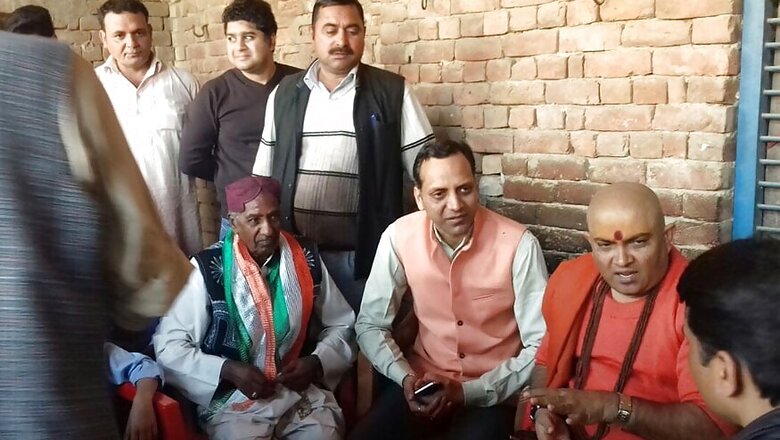
views
Bilochpura, Baghpat (UP): March 27 means nothing to most people in the Indian Subcontinent but those in far off Balochistan, Pakistan’s largest and most impoverished province, March 27 is a ‘Black Day’ – the anniversary of the day Pakistan’s “illegal occupation" of Balochistan.
Seventy years and five wars of independence after the Khan of Kalat was forced to accede to Pakistan, the bloody conflict has left behind a trail of dead bodies, forced disappearances and extraordinary resilience to the Pakistani Army. But there is one corner of the subcontinent where the Baloch people live life in peace, almost unaware of their ethnic identity and roots – in the state of Uttar Pradesh.
There could not be a starker contrast between the harsh landscape of Balochistan and the lush-green paddy fields of the Ganga-Yamuna Doab in Western UP. Yet, a village in Baghpat district, just a two-hour drive from the National Capital, bears the mark of the distant land in its name.
In Bilochpura village, Sonu Pathan is like any other ordinary Western UP boy. His biggest concern is lack of employment opportunities. He aims to join the Indian Army. “I have a BA degree. I’m trying to find a job. I recently applied for the Army when the recruitment forms were released online," says Sonu.
Twenty-one-year-old Sonu’s wish to join the Army does not come as a surprise to his brother Irfan Pathan, the village strongman. The village, he says, has had a “martial" history. “Mughal Emperor Babur came to India in 1526. He won the battle of Panipat in four hours because he had muskets. Some of the topchis (artillerymen) in his army were from Balochistan," he says.
While many in Babur’s army went back home, the Balochis fell in love with the plush landscape of the Gangetic plain and chose to settle down on the banks of the Yamuna.
The village was named ‘Bilochpura’ and these ethnic Balochis have since called India home. In 1857, during India’s First War of Independence, the men and women of Bilochpura once again rallied under the Mughal banner. Allah Diya Khan, a resident of this village, rose to become an advisor to the last Mughal Emperor Bahadur Shah Zafar II and was instrumental in fighting the British.
Standing near Allah Diya Khan’s grave in Bilochpura, Pathan beams with pride and says, “He (Khan) was my ancestor. He was captured by the British and tortured to death. His descendants heeded Mahatma Gandhi’s call and marched against the British four generations later. After independence, people from our family have gone into the Army, Delhi Police and UP Police. Our hearts beat for India."
Pathan repeatedly stresses his “Indianness". Over the last 500 years, these ethnic Balochis have become as Indian as anybody who may have come from elsewhere but were assimilated in the Indian cultural milieu.
Life went on as usual in Bilochpura until one watershed event shook things up – Prime Minister Narendra Modi’s Independence Day Speech from the ramparts of the Red Fort in 2016.
“Over the last few days, the people of Balochistan have thanked a Prime Minister of India. In doing so, they have given respect to 125 crore Indians," the Prime Minister said on August 15, 2015. After he touched upon the Baloch cause in the Independence Day addressed, Modi stirred the hornet’s nest.
It intensified Baloch protests across the world, with community activists thanking the Indian leader for his moral support. The last time India supported self-determination for a Pakistani province, it resulted in creation of Bangladesh in 1971. The PM’s speech triggered some bitter memories in the Pakistani establishment. Pakistan retaliated by saying this was India’s attempt to distract from the alleged human rights abuses in Jammu and Kashmir.
It was then that local historians cleared the dust off Bilochpura’s heritage. Amit Pathak, a Meerut-based historian, says, “My area of interest is the mutiny of 1857. I knew that there were several villages in Baghpat around the Yamuna that had fought alongside the Sepoys and after the mutiny was quelled, the British had responded with brutal retribution. Our aim was to find these villages and have them recognised as ‘Kranti Gram’ or ‘Revolutionary villages’."
It was during this research that Pathak and his associate Amit Rai Jain, another historian, found Bilochpura. “We found that people had settled here during the early Mughal period. Suddenly, we had found a Baloch village in a corner of UP!" exclaimed Jain.
Once the information was out there, an outfit called the ‘Hind Baloch Forum’ saw this as an opportunity. The Hind Baloch Forum was formed after the PM’s speech in 2016 as a ‘civil society movement’.
After reports in local Hindi-language dailies, the Forum made a beeline to Bilochpura and held seminars here. This tiny, non-descript village has since then played host to the who’s who of the Baloch freedom movement.
Everyone from Mazdak Baloch to ‘Mama’ Abdul Qadeer Baloch have visited this village and spoken of the horrors of daily life in Balochistan, 1,000 kms from Baghpat.
The Hind Baloch Forum has no permanent address, not even a website. It operates without a base and its posters proclaim Rashtriya Swayamsewak Sangh (RSS) ideologue Indresh Kumar and Akhil Bhartiya Sant Samiti General Secretary Swami Jitendranand Saraswati as its patrons.
Sandeep Jha, the Hind Baloch Forum’s Core Committee Member, insists that the outfit is “apolitical". He says, “Indresh Ji may be a senior RSS functionary but as a common, conscious citizen, his political affiliation, his cultural affiliation is immaterial for Hind Baloch Forum. This is a civil society movement that concerns itself with the human rights violations against the people in Balochistan. It wants to join its voice with the voice of the people there. There is no political motive behind this."
In 2016, Mazdak Baloch urged the people of this village to accompany him to the Pakistan High Commission to protest against the alleged atrocities of the Pakistan Army – or as Baloch freedom fighters call it, the “Punjab" Army.
“We took people from here and held a demonstration outside the Pakistan Embassy and submitted a memorandum of our demands," says Irfan. He goes on to proclaim proudly that they even “broke through police barricades".
But what the Hind Baloch Forum sees as an “awakening" of the Indian people towards the Baloch cause, many Baloch activist see merely as lip-service.
Abdul Qadeer Baloch, Founder of the International Voice for Baloch Missing Persons, is a quiet, unassuming 78-year-old. He shot to prominence in 2013 with his “Long March" for missing Baloch when he marched from Quetta to Karachi and then to Islamabad.
“I have a great interest in history. I was reading about Mahatma Gandhi’s Dandi March and Mao Zedong’s Long March. When Gandhi walked, his country became free. When Mao walked, his country became free. So why could my country, Balochistan, not be free of Punjabi occupation?" he asks.
News18 met Qadeer when he was in India in March to seek medical treatment for his 10-year-old grandson, who suffers from a serious heart disease. He sees India favourably, but feels it is not doing enough.
“If Modi Sahib wants to help us, he should provide us arms and guns so that we can fight our enemy with those. We can fight our own wars. If you (India) want to help Balochis, don’t help them with words. Help them materially. Do something for us. Show us how you support us. You spoke about this two years ago but haven’t done anything for us since then," he said.
But is Qadeer, who earned the epithet ‘Gandhi of Balochistan’ after his Long March, comfortable with the use of violence to attain independence?
“I am fighting in my own non-violent way, they (insurgents) are fighting with their own means. Both of us need Indian help. It doesn’t matter which way succeeds. Balochistan has fought five wars against Pakistan. And yet, it could not attain freedom like Bangladesh. That is because Sheikh Mujib and the Mukti Bahini both got Indian help. Mere words will not be enough."
According to Qadeer, over 45,000 Baloch men and women are currently missing. For him, this fight is a personal one. His son Jalil Reki, who was a prominent Baloch freedom fighter and an associate of Nawab Akbar Khan Bugti, went missing in 2012. Months later, he was found dead near the Pakistan-Iran border. Qadeer blames Pakistan’s insidious intelligence agency ISI and the Pakistan Army for his son’s “murder".
“When I found out that my son has been martyred, I was happy instead of being distressed. At least he has sacrificed himself for a good cause, his land and his country. There can be no bigger matter of pride for a father. I was told that they (Pakistan Army) were bringing his body. I said, no. You will not touch him. The establishment, government and Army have done what they had to. Now I will handle my son’s dead body myself. I will bring him home myself," he said.
In India’s capital, Qadeer’s ten-year-old grandson, who has just been discharged from the hospital, is running around, trying to click pictures of pigeons on the terrace.
“Doctors had told us not to tell my grandson about his father because he may go into shock. He has a heart ailment. When he’d ask about his father, we would tell him he has gone out for a job, or to study or he has gone far away and will be back soon," he said.
So how does Qadeer, who is older than the state of Pakistan itself, see the future of the country? “I am not sure Pakistan will exist for so long. Balochistan will rise, Sindh will rise, the Frontier will rise and so will Khyber Pakhtunkhwa. All that will be left of Pakistan is Punjab. They are welcome to keep Punjab," he predicts ominously as he turns to read a book on Indian history to his grandson.











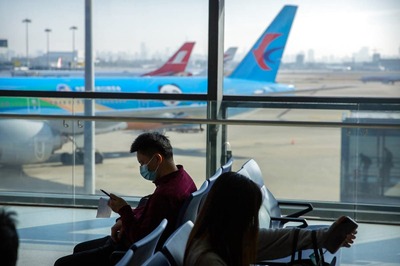

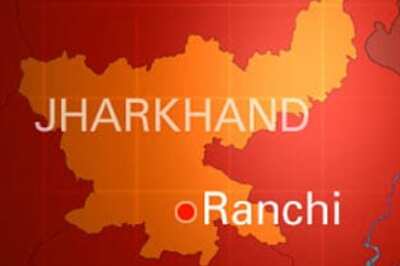

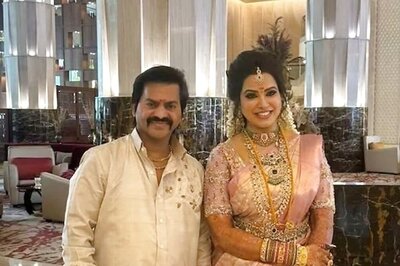
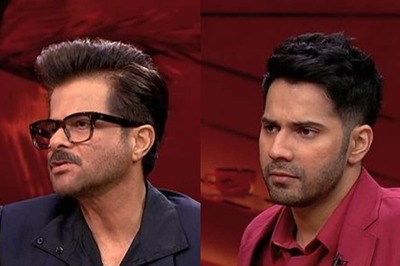
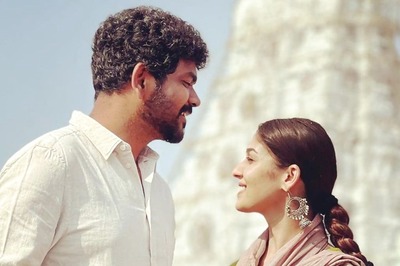


Comments
0 comment